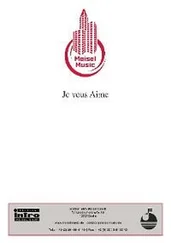He waited three minutes, and when he didn’t see anything more, he hauled himself up the stairs, to the apartment, where he pushed on the still-open door, stood in the living room he’d watched flicker and snow up for so many nights on his screen, and realized he was alone in the apartment.
He shouted into his walkie-talkie and then he was back down the stairs, to the double doors that had tripped the alarm and out onto the Toneybee’s grounds. The full moon was so bright, he would have instantly seen anyone walking across the grass, but he saw no one. His walkie-talkie squawked to life: it was Dr. Paulsen saying she was on her way, warning him not to call anyone else, especially not the police, at least not yet.
Lester Potter stood in his uniform short sleeves on the frostbitten lawn of the Toneybee Institute and tried to listen above the sound of his own teeth chattering. He could hear the crunch of the ice on the grass whenever he moved. It was impossible that anyone was out here.
That’s how Dr. Paulsen found him. “They can’t possibly be outside,” she scolded. “We need to make a full search of the building.”
They didn’t see Callie and Charlie on the lawn because they were lying low in a valley of frostbitten grass, just to the left of the swell of earth that Lester Potter stood on. Callie was on her back and Charlie leaned docile against her. While Lester Potter called their names, she tilted her face to the moon in the sky, watched it with wild, darting eyes. Beside her, Charlie’s pupils were glassy, his lids low.
They heard the whine of Dr. Paulsen’s voice, the distinct click of the doors swing shut and they were alone again.
They sat together, the two of them, and Callie waited for that filled-up feeling she usually had whenever Charlie allowed her to touch him. But she felt nothing. Only the cold. Only smelled starch and sugar on his breath, which seemed wrong somehow. Transcendence and purification should not smell like already-eaten dinner. She sat up, tugged on Charlie, and started them both toward the lake.
The water was beautiful in the moonlight, not the scabby brown it usually was, but silver and inviting. She could hear the waves knocking against the wooden boat on the shore, and the sound, she knew, right then, with all her heart, was the universe calling to her. She walked both of them closer to the water. Even then, Charlie didn’t protest, he just held the edges of her cape a little tighter.
She only meant to sprinkle a few drops of the Toneybee’s lake on the top of Charlie’s head, just wet his hair and maybe behind his ears, and wet her own stiff Jheri curl, and then they would head back inside, united and reborn. But, as she knelt close to the water, as the wavering, sloppy reflection of her face opened wide into a smile, Charlie broke out from under all that sleep and bit her hand, the one that was stretching out to the water’s surface, to absolution. He bit her in the palm of her hand, nipping the tough skin there.
She didn’t mean to drop him in the water. It happened so quickly and then she was in the water, too, and the two of them were wrestling and panting, Callie bringing her velvet cape over his head and trying to dunk him down, over and over again, while he resisted.
By the time Lester Potter and Charlotte and Laurel and even Max got to the shore, Charlie was under the surface, flailing in the water, and Callie had the cape’s edges bunched up in her fists. It took Max and Lester Potter both to get a good grip on her and drag her out of the water. Laurel went straight to Charlie. She took him in her arms and he bucked and gnawed furiously at the air until Dr. Paulsen came rushing across the lawn, running at an awkward, hampered pace because of all the blankets she carried. She made it to all of them, panting, and she dropped the blankets in the grass and stepped in close to Laurel, held out her arms.
“Give him to me, please.”
Laurel looked down at Callie, who was huddled now on the ground. Charlotte was beside her, trying to gather her into her arms.
Charlie held the ends of Laurel’s hair.
She opened her arms and released him.
Beside me on my desk there’s a raw chicken liver in a red velvet jewelry box. The box is just large enough to fit the meat, but a pinch of flesh is caught in one of the metal hinges, and the little gilt clasp that closes the box strains against the hump of liver.
The whole thing — box and liver — softly stinks. This morning, before I sat down at the computer, I took the box out of the refrigerator where it has nestled for the last few days between a quart of raspberry kefir and a plastic pint of alfalfa sprouts. When my wife, Darla, saw me put it on my desk so early, long before I was supposed to take off, she wrinkled her nose.
“Jesus, Charlotte,” Darla said, “is that really necessary?”
“I don’t want to forget it,” I told her, but she knew, of course, I would never forget.
“You could have just kept it in the fridge. I would make sure you took it.”
The velvet box is from the Christmas present Darla gave me last year. The present was a necklace made of a flat gold chain. I wear the necklace now, but when I got that present, I was most excited about that box and wished I’d gotten it a few weeks earlier. When we were cleaning up last year, I slipped that box into the plastic shopping bags we keep in the hall closet, stuffed with throwaway bows and scraps of wrapping paper and dead rolls of scotch tape, and I thought about that red velvet box all year long.
But still, I put off getting into the car until the last possible moment, until I will most certainly be late.
Instead, I sit at my desk with my present of chicken liver and answer e-mail.
Before that, I was Googling Charlie and the Toneybee. I only allow myself to do this once a year, this time of year, and every year I find a little bit more. In the years since we left the Toneybee and I have grown and graduated from college and made my small life in the world, the story has moved out of my reach. It’s all because of the Internet. Online, there are those who remember the experiment, and those who discover it, and usually those are the people I’ve learned to avoid: racial militants, animal militants, trivia buffs, fans of great apes, the relentlessly quirky. Once a year, I search and I find our family in posts with titles like “Top Ten Wackiest Sacrifices for Science” and “Fifty-Three Weirdest Childhood Pets.” I read the lists and then I will myself not to read the comments.
Sometimes someone finds my e-mail address and sends me a question. They’ve tracked down the Toneybee’s report of the experiment, or they’ve read Man or Beast? for some college seminar. They write to ask if all of it is true. I don’t write back to the cranks or the ones with a mission, but I respond to the softball questions.
“What was it like having a chimp for a brother?”
I’ve learned you can’t really answer much more than that. You have to stop the questions there, before things get weird. Things always get weird. Usually people are just ramping up, waiting to steer the conversation toward what they really want to talk about: some form of race baiting or speculation about hygiene or, inevitably, questions about sex. To stop any of that from happening, I make a crack about the smell. I write, “Having a chimp for a brother stinks.” I like imagining the groans that greet that awful pun.
“What was it like having a chimp for a brother?” they write, and I write back, “It was a wonderful experience. I would not trade it for the world. It was really something special. My sister and I are grateful.”
Twenty minutes before I should leave, I get up from my desk and take great interest in fishing a broken tea bag out of the garbage disposal. When I pass through the living room, Darla says, from the couch, “Just go already. You’re making it worse by stalling.”
Читать дальше
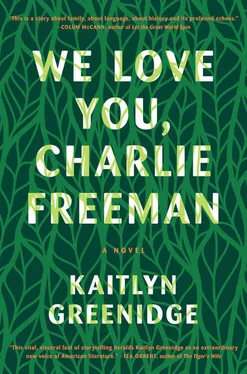





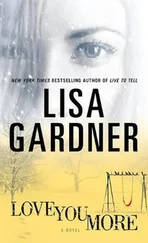
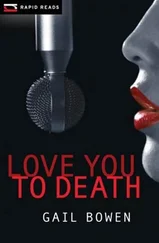
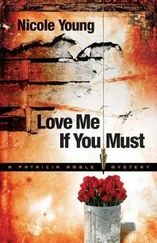

![Ally Carter - [Gallagher Girls 01] I'd Tell You I Love You But Then I'd Have to Kill You](/books/262179/ally-carter-gallagher-girls-01-i-d-tell-you-i-lo-thumb.webp)

